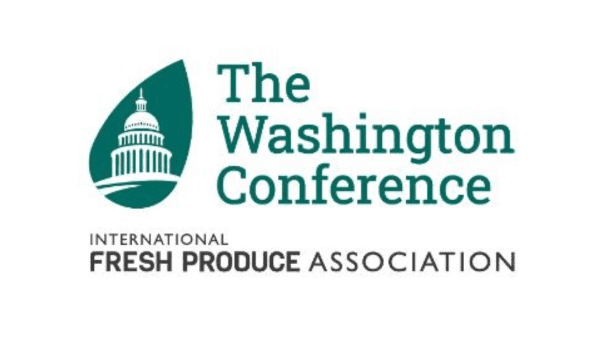While it’s not an election year, there is plenty for the produce industry to influence in the nation’s capital.
The International Fresh Produce Association (IFPA) BB #:378962 2023 Washington Conference September 12-15 in Washington, DC, brings in hundreds of industry leaders, and Robert Guenther, IFPA’s Chief Public Policy Officer, says their presence is important every year.
“I look more long term” when it comes to measuring the success of attendees, he said.
For example, Guenther said the produce industry has spent 20 years pushing for special benefits in WIC for fresh produce, and funding is up to a significant amount. And the school snack program started as an idea and then a pilot 20 years ago, and now it’s over $250 million in all 50 states.
“Our work on the farm bill has been huge,” he said. “Washington, DC, doesn’t turn on a dime.”
This year, IFPA has identified four key issues that attendees will push with Congress members and their staffs.
Farm bill
The current farm bill expires at the end of September and will probably be extended, Guenther said, because the 2023 version is not close to being a bill to vote on. Chairs of committees are scheduled to speak at the even.
Guenther said the industry is looking for funding for mechanization research, risk management tools, specialty crop block grant increases, and increased access to fresh produce in federal nutrition programs, including produce prescription programs.
Labor
Any wide-ranging immigration legislation is again unreachable, but Guenther said produce industry members must remain in the debate or others will take our spot.
“We have to keep pressuring the issue or someone else will,” he said.
The industry continues to support border security as part of a legal foreign workforce.
In the short term, the industry opposes the wage rate increase in the H-2A and will push for it to remain at 2022 levels, he said.
FDA
The U.S. Food and Drug Administration continues to consider structural changes, and even named its first deputy commissioner for human food last month.
Guenther said it’s important for attendees to stress that we support many findings in the Reagan-Udall report, which would improve FDA’s structure to make it more efficient, transparent, and collaborative for food and food producers.
WIC
Earlier this year the U.S. House proposed cuts the fruit and vegetable benefit in the Women, Infant, and Children Program, while the Senate has maintained current benefits. The House cuts, if passed, would cost up to $1 billion in produce sales.
Obviously, Guenther said, the industry is fighting the cuts and hopes to plan meetings with many House members who proposed them.
He said industry attendees will meet with some Congress members, but more likely will meet with their staff. It’s still valuable because the staff passes on those messages.
“They hear from us all the time [IFPA staff], but hearing from you enhances that message,” he says for attendees. “If you’re not there, someone else will share their message and get that priority.”



